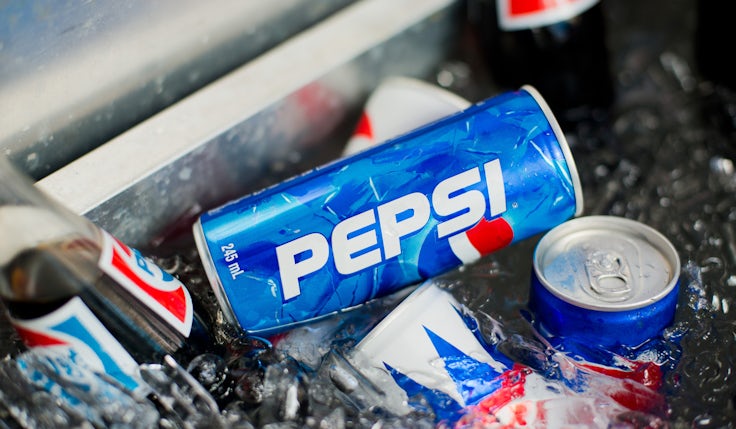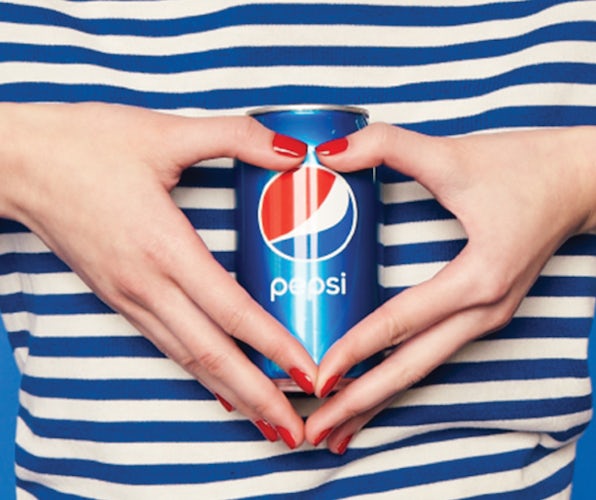PepsiCo underlines importance of brand strength as prices increase
The drink and snack firm says it is focused on becoming a “better data company” as it looks to improve the way it measures the ROI of marketing.
 PepsiCo’s boss has underlined the importance of having strong brands as prices continue to rise, as he committed to improving how the company measures return on investment for marketing.
PepsiCo’s boss has underlined the importance of having strong brands as prices continue to rise, as he committed to improving how the company measures return on investment for marketing.
Chairman and CEO Ramon Laguarta described marketing as an “important element” in the company’s overall growth strategy, as it means consumers continue to see value in its brands despite the fact prices are increasing.
He said the investments PepsiCo has made in improving “brand
strength”, and other factors such as how it executes in-store, is giving the business the “tools” it needs to “manage the price increases in better ways than we used to do it in the past”.
“Strategically we want to continue with these kind of investments, being very rational in the way we invest A&M [advertising and marketing], but understanding that a company like ours, the core competency is building brands,” he said on an earnings call yesterday (10 February).
“In situations like we’re having this year where we have to price, we have consumers following us in spite of higher prices. So I think strategically it’s a very important element in our overall growth strategy.”
The group, which owns brands including Pepsi, Walkers and Quaker, posted a 4.5% drop to its full-year operating profit for 2021 in Europe, which it puts down to higher operating costs -namely a 28 percentage point increase to commodity costs – as well as higher advertising and marketing expenses in the fourth quarter.
One of the things I think we’re getting better at is measuring our return on investment on our marketing.
Ramon Laguarta, PepsiCo
The company also pointed to the supply chain disruption it experienced at the end of last year as being a factor. After implementing a new ERP system in the UK supply was impacted, resulting in many supermarket shelves being left without Walkers products.
This contributed to operating profit decreasing by 16% in the fourth quarter, but the drop was primarily caused by a 41 percentage point rise in commodity costs, as well as higher restructuring and impairment charges. The company says these were offset by net revenue growth and productivity savings.
Coca-Cola claims revamped marketing model is delivering ‘strong results’
Focus on data
With advertising and marketing expenses increasing, Laguarta said the group is now focused on improving how it measures marketing effectiveness.
“One of the things I think we’re getting better at is measuring our return on investment on our marketing,” he said, adding that PepsiCo is “becoming a better data company”.
“We’re able to put better numbers to those investments and have the marketing teams and the commercial teams overall choosing different levers that give us the best return overall. And that’s playing very well. It’s obviously one of the reasons why we’re gaining market share across many categories,” he said.
Overall, the PepsiCo group recorded an 11% increase in operating profit for the year, with net revenue growth of 12.9%.
At the end of last year, PepsiCo appointed Mars veteran Jane Wakely as executive vice-president, chief consumer and marketing officer, and chief growth officer of international foods.
As chief consumer and marketing officer, Wakely has been tasked with focusing on accelerating growth by “elevating” PepsiCo’s consumer-centricity, innovation, brand and marketing capabilities. Meanwhile, as chief growth officer of international foods, she is responsible for accelerating the ‘positive choices’ pillar of the business’s transformation strategy, PepsiCo Positive (‘pep+’).






Comments